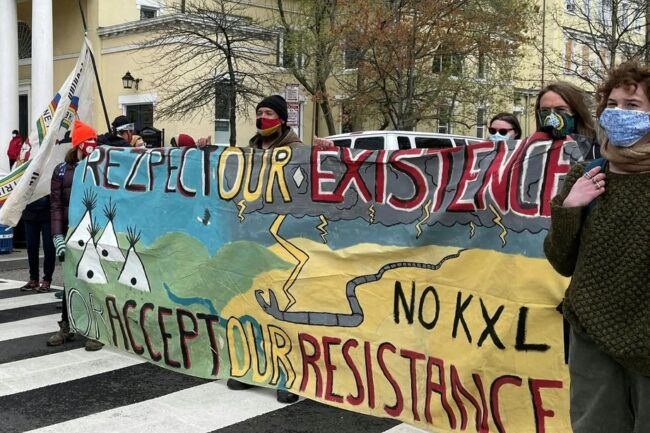
Activists display banners referring to shutting down existing oil pipelines in the northern United States at Black Lives Matter Plaza in Washington, DC. on April 1, 2021. Source: Daniel Slim/AFP, Getty Images, via Vox
On November 6, 2011, tens of thousands of protesters installed a long, black inflatable pipeline replica outside of the White House to oppose the Keystone XL project. They demanded President Barack Obama block construction of the 1,700-mile pipeline, which would carry tar sands oil from Canada through multiple U.S. states to the Gulf of Mexico.
According to Arnesa A. Howell’s Grist article, Pipeline Protesters Encircle the White House:
The rally, which culminated in a human ring encircling the White House, was a sequel to August’s civil disobedience campaign, during which 1,252 protesters were arrested.
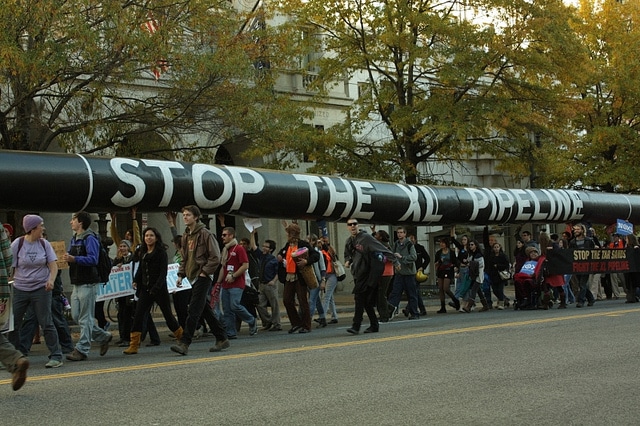
Protesters with pipeline replica. Source: Texas Standard
By 1 p.m., throngs of ralliers — wearing bright orange vests emblazoned with the words “STOP the Pipeline” — were already congregating at Lafayette Square Park across from the White House. Protesters from across the country and Canada waved signs opposing Keystone XL and chanted: “Hey Obama, we don’t want no climate drama!”
The rally unfolded with a bevy of environmental leaders, social activists, politicians, and citizen advocates: actress Gloria Reuben and actor Mark Ruffalo, Sierra Club executive director Michael Brune, Nobel Peace Prize recipient Jody Williams, civil rights activist Dick Gregory, and others.
Together, they voiced opposition to a pipeline that activists argued would have dire consequences: jeopardizing sources of fresh drinking water, damaging the ecosystem, and imperiling the climate. Read more.
Protests of the Keystone XL Pipeline, many led by Indigenous groups, continued and grew in number and intensity over the next decade, resulting in the project’s cancellation in 2022.
Watch a video below of protestors linking arms in front of the White House, taking a stand against the proposed XL Pipeline.
Additional Resources
The Native American Rights Fund’s Keystone XL Pipeline Timeline
Anna Presnall’s article at the University of Alabama at Birmingham Institute for Human Rights Blog, The Keystone XL Pipeline and America’s History of Indigenous Suppression.
Suzanne Goldenberg’s article for The Guardian, Thousands Protest at the White House Against Keystone XL Pipeline.
This event is included on the Zinn Education Project’s Climate Crisis Timeline.

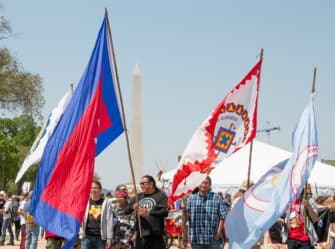
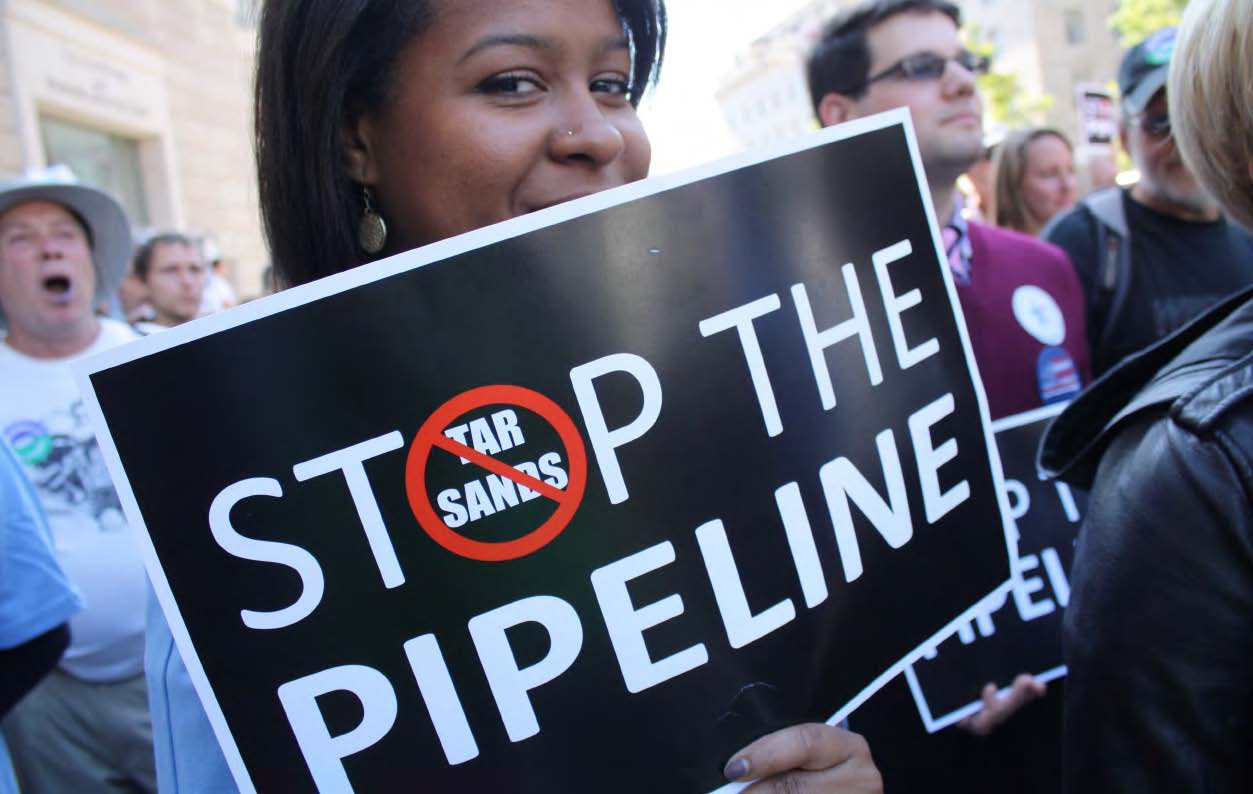

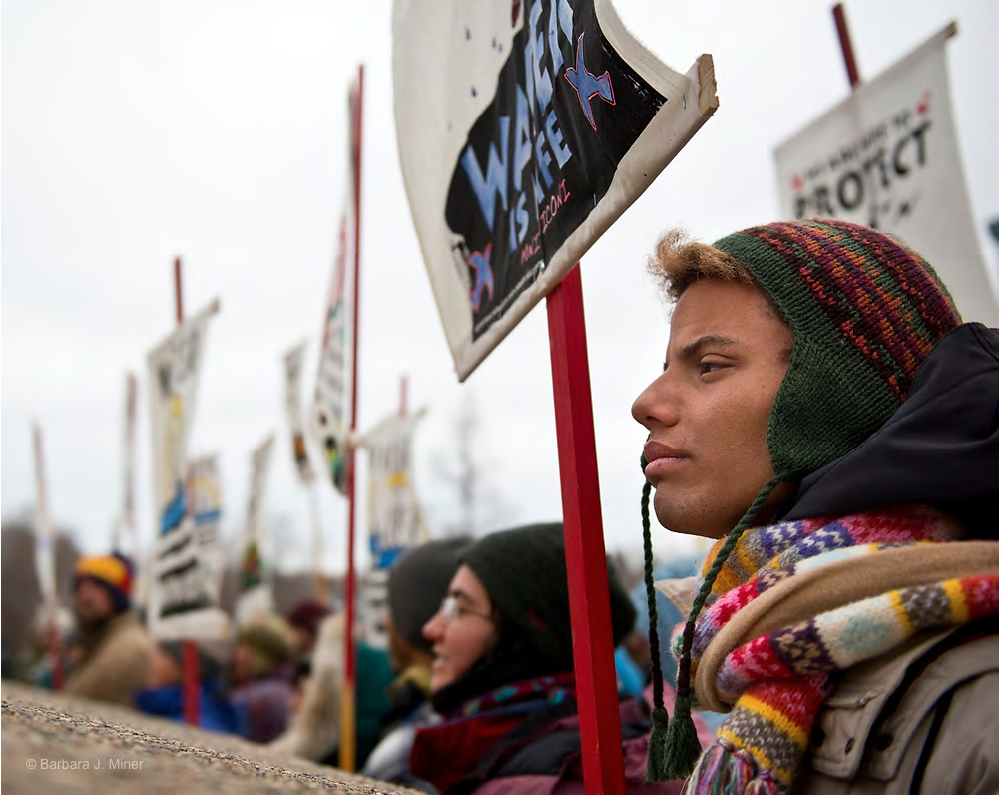
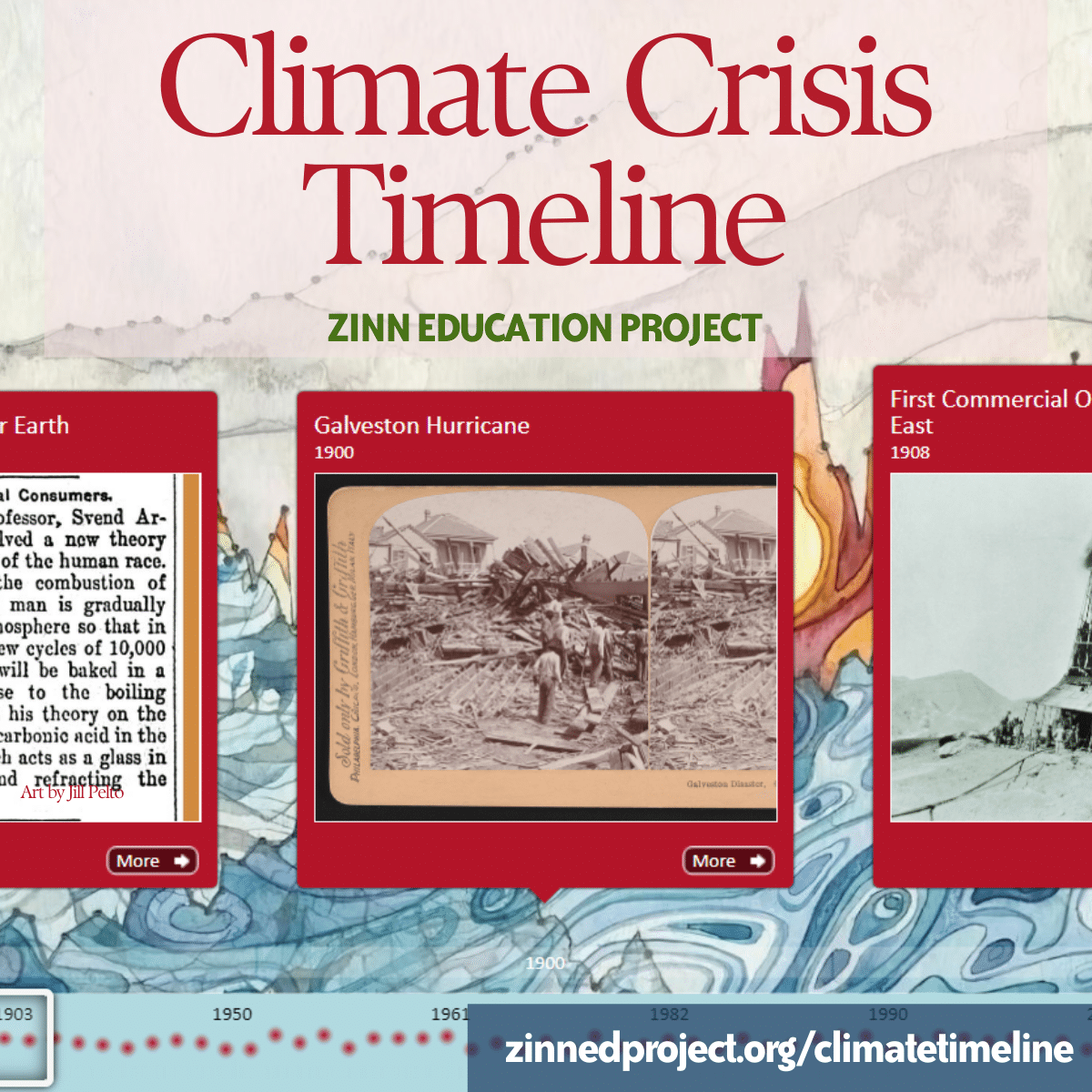
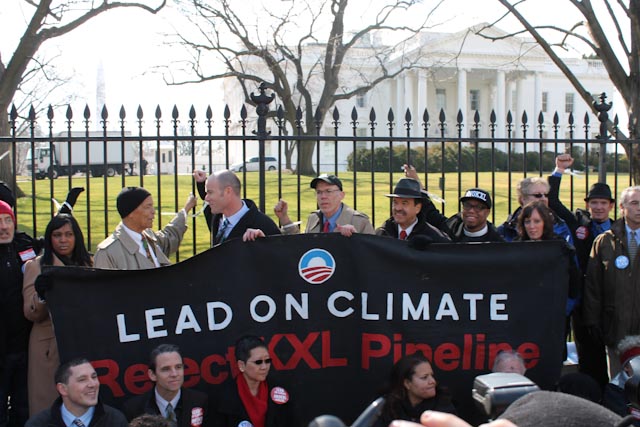
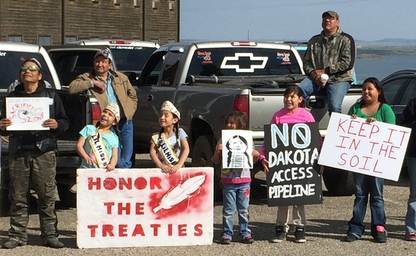
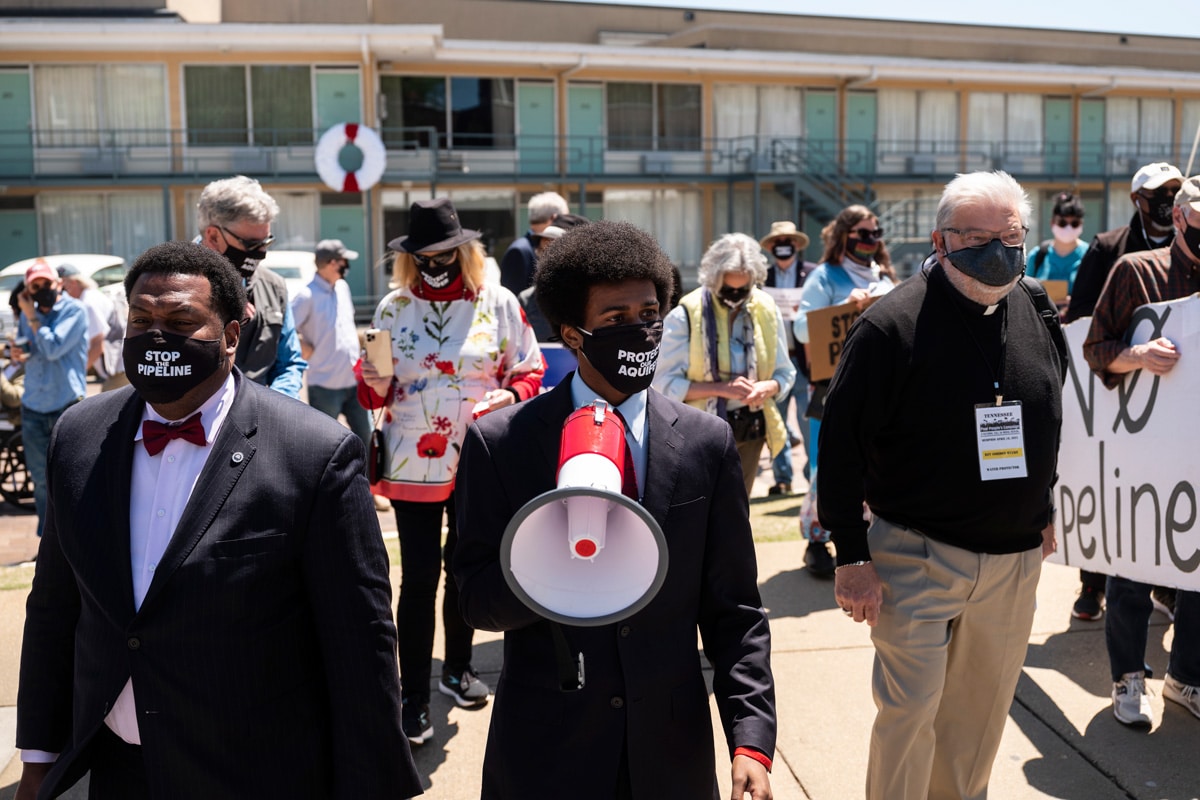





Twitter
Google plus
LinkedIn